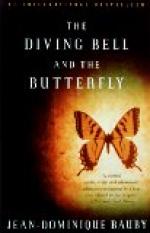One day, when the girls at school were required to write compositions, Clara thought she would write something which would make Carrie ashamed of her selfishness. The teacher read all the compositions aloud. When he came to Clara’s, the girls had as much as they could do to keep from laughing, for they knew, before it was read, what it was about. The schoolmaster had to bite his lips to keep from smiling a little, too.
Clara did not call any names. But she wrote such a composition about “My Pretty Kitten” that anybody could see it was meant for Caroline. The selfish girl saw it, as well as the rest, and before school was out, she burst into tears, she felt so badly. But the composition did her good. She improved wonderfully after that.
X.
“I DON’T KNOW.”
How difficult it is for many people to say these words. They don’t like to own that they are ignorant of anything. They want to make you think that they know everything. When you ask them a hard question, instead of saying right out, plumply and honestly, “I don’t know,” they will try to trump up some answer that will not expose their ignorance. And oh, what wretched work they sometimes make with their answers. They make perfect fools of themselves.
People never appear well, among those of good sense, who attempt to pass themselves off as knowing more than they do. It is not to be expected that any one person can know everything; and why should you, or anybody else, be ashamed to own that you can’t tell all about this thing, or that thing? Why it is often one part of wisdom to see that you can’t understand a particular subject, and another part of wisdom to confess that you can’t understand it.
I think that the dog, who figures with a certain vain, self-conceited monkey, in the fable, showed a good deal of wisdom in his remarks.
The monkey, you must know, belonged to a very learned astronomer. The animal often watched his master, while he was looking through his telescope. “There must be something delightful in that,” he thought, and one day, when the astronomer was absent, the monkey looked through the instrument for a long time. But he saw nothing strange or wonderful; and so he concluded that his master was a fool, and that the telescope was all nonsense. Not long after that, he met Rover, the family dog, and he told him what he thought of his master. “And what do you think of the matter, friend Rover?” he added.
“I don’t know the use of the telescope,” said the dog, “and I don’t know how wise our master may be. But I am satisfied of two things.”
“What are they?” the monkey asked.
“First,” said the dog, “that telescopes were not made for monkeys to look through; and second, that monkeys were not made to look through telescopes.”
[Illustration: THE LEARNED GEESE.]




